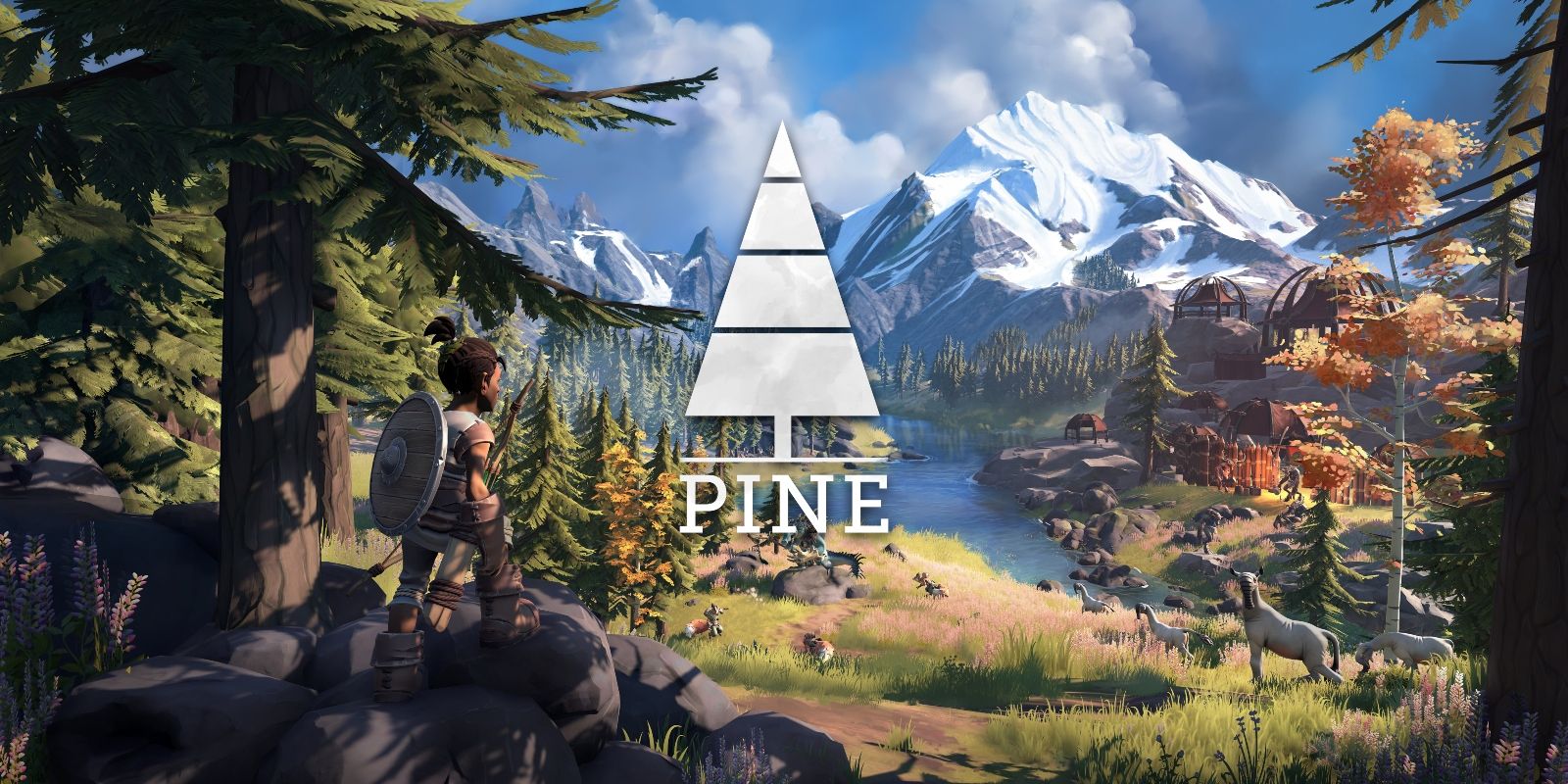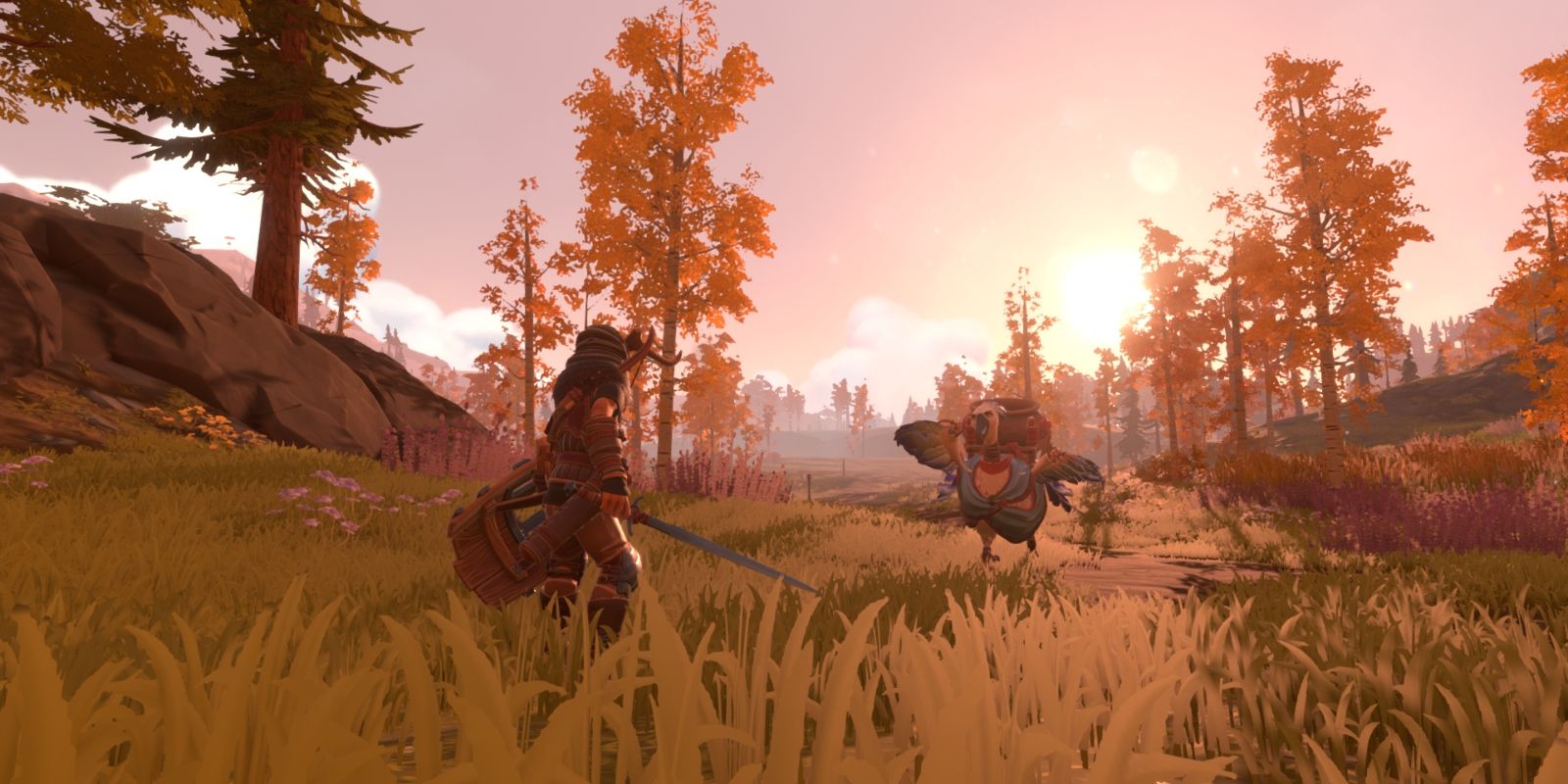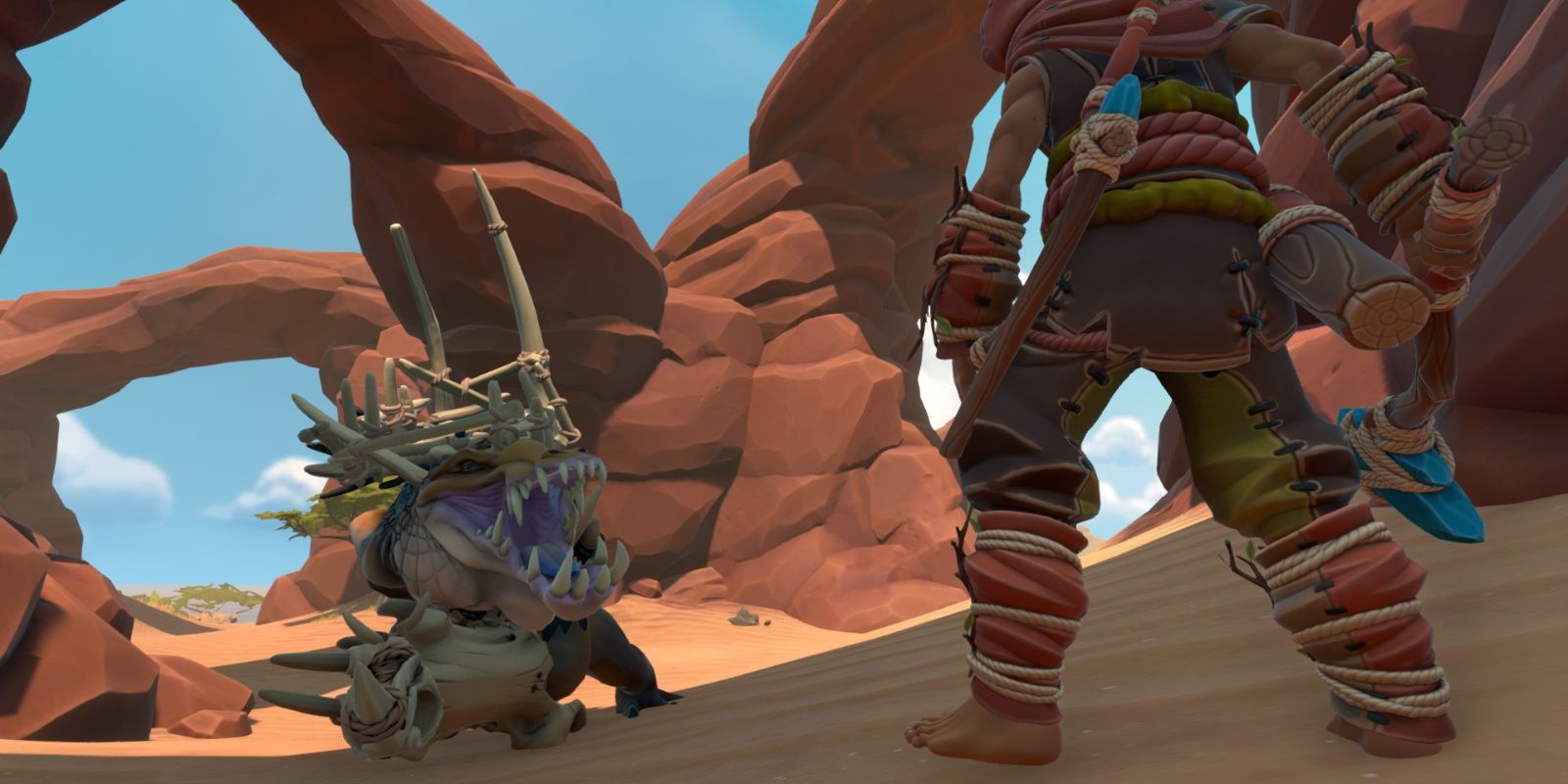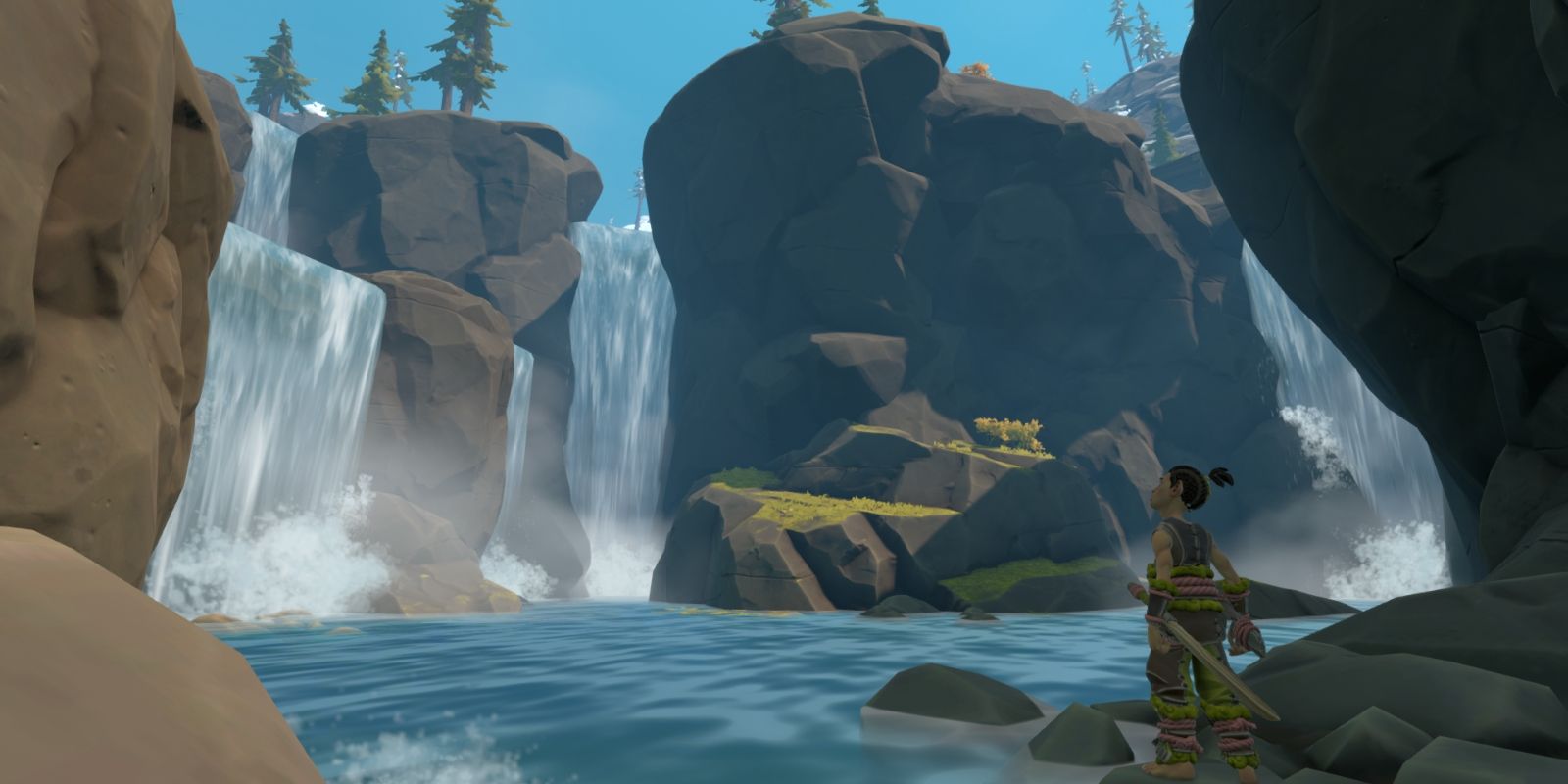Over a year after launching on Steam, GOG and Nintendo Switch, the open-world indie adventure game Pine is finally available on PlayStation 4, with PlayStation 5 owners also being able to play the game through backwards compatibility. Set in a world where humans never became the dominant species and, instead, ended up near the bottom of the food chain, players can explore a dynamic and changing world in which various animals continued to evolve to the point of developing cultures of their own.
Pine is full of fascinating ideas and simulation aspects that make its world feel truly lived in, dynamic and changing based on the player's actions. Unfortunately, the game itself falls short of its grand ambitions, suffering from shallow mechanics and a multitude of technical issues. While Pine's rich world and intriguing story offer some fun adventures, the game ultimately has too many issues to call the experience enjoyable as a whole.
Pine tells the story of Hue, a young man from a mountain-dwelling human tribe. After a tragic incident makes it clear that the cliff if no longer safe to live on, Hue must find somewhere for his people to go, while also convincing the traditionally-minded village elders to seek a new home in the dangerous Out. Hue's tribe and the various cultures he encounters on his journey throughout the world of Albamare are intriguing and distinct.
Seeing the various species designs and uncovering the history behind why the humans hid themselves away -- and why most others are initially hostile towards Hue -- is a highlight of the game. If you're the kind of gamer who loves diving into lore and uncovering a world's secrets, you'll enjoy exploring Albamare and learning about its history and many inhabitants. The world itself is also beautiful, making it easy to get lost in its snowy tundras and sandy dunes as you try to track down a resource or landmark.
There are several species of anthropomorphic animals Hue can encounter and attempt to build affinity with, though building up an alliance with one tribe may impact your relationships with everyone else. For instance, you may be friends with the Fexels, a race of fox-people, but building affinity with them might hurt your relationship with the Krockers, humanoid crocodiles. Just as in the real-world, Albamare's various tribes have fought over territory and resources, developing their own interests and politics in the process; the affinity system is there to authentically replicate such dynamics. This makes Pine's world feel truly lived in, as if it exists regardless of what the player does, but can still be shaped and influenced by their actions.
Unfortunately, Pine is also full of frustrating mechanics and technical issues that undercut the genuinely fun and engaging experience it is so close to delivering. The game's combat is both incredibly simple and irritatingly clunky, and there's not much in terms of progression to make it feel like Hue is growing or improving over time. You can obtain better armor and weapons, but most of the time, the best option is running away to avoid a deadly encounter or prevent yourself from accidentally killing an ally and ruining your relationship with one of your few friends.
While the minimalist combat mechanics may actually help reinforce the idea that you are near the bottom of the food chain in a dangerous world, less justifiable are all of the technical issues I encountered, particularly during fights. There were times when game seemed to not register that I was even pressing a button. On several occasions, Hue even died because he inexplicably decided to sit down mid-battle instead of running or dodging, and he wouldn't stand or move until he took a hit or two.
Making each death feel even worse are the game's long loading screens. While these may not be as bad on a PlayStation 4 Pro or PlayStation 5, when running on a base PS4, it typically takes between 70 and 90 seconds to get back in action. It breaks up what could be an immersive and engaging experience, something that's all the more frustrating when it was the game's fault that you died in the first place.
Also immersion-breaking are Pine's camera issues, particularly during dialogue. You can't move the camera when in conversation with someone, and it'll sometimes end up at an awkward angle or behind another character. This happened to me during a particularly solemn moment -- one in which Hue receives the tragic news that sets him off on his journey. During the scene, the camera got stuck behind another character and would clip through them throughout the conversation, greatly undermining the seriousness of the situation.
In its best moments, Pine is truly an impressive game. Developer Twirlbound is a tiny Dutch studio with just a handful of people working on the massive undertaking that is an open-world adventure game. Pine's simulation aspects are clearly where the major of time and resources were spent, and the game's attention to detail (like each species having their own habits, schedules, reactions and relationships) speak to Twirlbound's potential as a developer.
However, while the state Pine's PS4 port is currently pretty disappointing, there is some hope for gamers who are intrigued by its compelling world and unique mechanics. The game's Switch launch was also plagued with technical issues on a console that is even less powerful than the PS4, but to its credit, Twirlbound continued working on fixes and launched an improved version 2.0 nearly a year after launch. Whether the game now gets the same treatment on PS4 remains unclear. For now, it seems there is a great game hiding within Pine, one that players will hopefully be able to enjoy someday without caveats.
Developed by Twirlbound and published by Kongregate, Pine is available now on PlayStation 4, Nintendo Switch, PC, Mac and Linux. A review copy was provided by the publisher.




